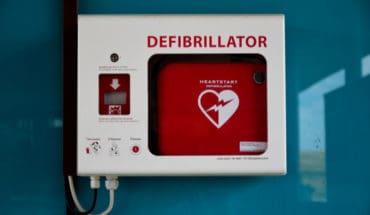But, as GPs, we need to make sure we ask the right questions so we get to the answers – even if a patient doesn’t bring it up first. We are at the sharp end and it is extremely important that we diagnosis problems causing breathlessness as early as possible.
Lung cancer is often diagnosed at late stage when the disease is advanced, but there are often warning signs that have been there for months and years – if anyone had noticed especially a new persisting cough. If we can pick up lung cancer early, we can improve survival rates for this deadly disease.
Idiopathic Pulmonary Fibrosis is much rarer – just 50 in 100,000 people develop this incurable lung condition though the numbers are thought to be increasing – but we now have treatments that can make a difference to our patients.
Breathlessness can also be caused by underlying issues like heart disease, anxiety and stress and infection as well as lung problems for example asthmas, problems of deconditioning and obesity. In some cases, it may be a red flag to pulmonary embolism, anaemia, thyroid disease or Tuberculosis. If we have an early diagnosis, we can put people on the right drugs, give them flu and pneumococcal jabs and support them in stopping smoking. We can also provide the correct advice on exercising, managing worsening symptoms and realistic expectations from our treatments and their disease. But not knowing, means that we can do nothing, or give treatments that don’t work.
The British Lung Foundation’s new Breath Test is a simple and easy way for patients to go online and discover whether their breathlessness is healthy and normal, or a sign of something more serious. GPs should encourage patients to take this test, whether in the surgery or at home, to get a clearer idea of whether their own breathlessness is a concern or nothing to worry about it. It has also been designed to put the ‘worried well’ at ease so it shouldn’t generate thousands of alarmed callers to GP receptions.
Those who are concerned should have a careful medical assessment and sometimes other tests like chest X-ray, electrocardiogram or spirometry which measures how much air you can breathe out in on forced breath. Spirometry, which requires an appointment with a nurse or doctor, is used to help diagnose COPD and occasionally lung conditions.
GPs are very good at taking a holistic approach to patients and assessing all the information they have alongside patient history and familial conditions. However, breathlessness is not always something that comes up in conversation in the first few minutes, It would be extremely helpful if GPs could have more time to spend with patients and find out underlying issues that are impacting their health. At the moment, GPs are very stretched and under huge time pressure to end appointments quickly. I hope that there will be an increased number of GPs in the future to ensure that diseases are diagnosed earlier. Any cost would rapidly be outweighed by the benefits of reducing disability and improving quality of life for patients who struggle to breathe easily.
- Diagnosing lung disease - 13th July 2016






